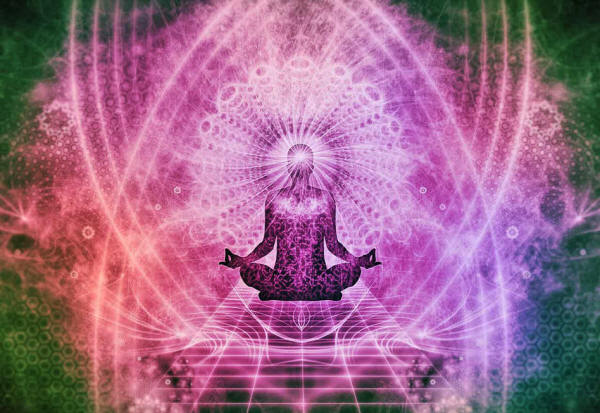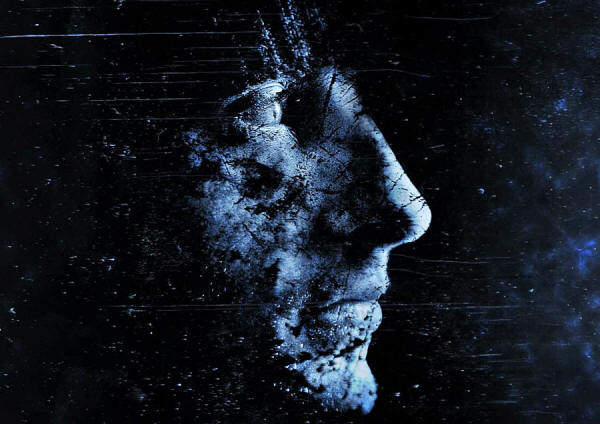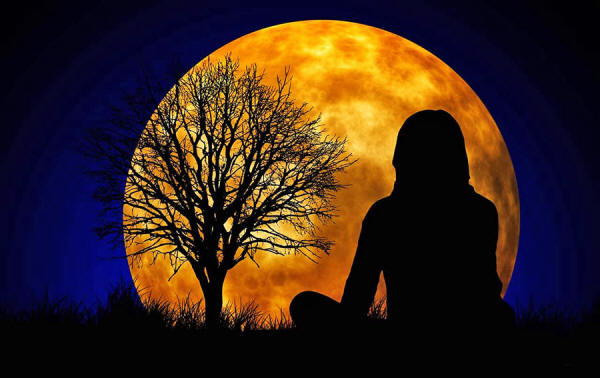|

by
Mateo Sol
August 01,
2018
from
LonerWolf Website

Oneness,
wholeness,
non-dual
awareness, unity…
If you've been on the spiritual path for a while you've probably
heard of these words and concepts at some point.
But what do these concepts actually mean? Although they may seem
complex, a little vague or confusing, they don't have to be.
My goal for this article
is to help you develop a clear and concise understanding of these
topics so that you can confidently say,
"yeah, I know what
that means and I've experienced it!"
YES. You can directly
experience
oneness
and wholeness.
I'm not pushing a dogma
or intellectual doctrine here - oneness and wholeness can be felt by
anyone. There's no secret or elite club here. No matter what age,
gender, race, background, intellect or level of spiritual
development you have, oneness and wholeness is your birthright.
In other words, not only
do you have the right to experience it, but it is an integral part
of your destiny as a spiritual seeker.
In this article, I'm going to explain the best ways to directly feel
and embody this sacred way of being.
There are no quick fix
solutions. This isn't an "instant enlightenment" type of article
(because let's face it, on the spiritual path there are no
legitimate quick fixes).
But it does aim to help
you dip your toes, even just briefly, into the experience of
spiritual oneness and wholeness.
What is
Oneness (or Wholeness)?
How is it possible to condense the entirety of existence into what
feels like a tiny speck of sand? It's damn difficult, but I'll try
to summarize it all for you.
Oneness is an experience that transcends the mind. When we
experience oneness, we feel a connection with everything in
existence on every level. In other words, we feel 'at one' with all
things.
Wholeness, which is a word I use interchangeably with oneness, is
the feeling of fullness, vastness, and completion - it is the
experience of embodying our true nature, the Self that exists beyond
our scrawny and limited personalities (also known as
our egos).
Why is it So
Hard to Experience Oneness and Wholeness?

Our minds fragment life.
Put simply, the reason why it is so difficult and rare for us to
experience oneness and wholeness is that our minds
won't let us.
While our minds help us to plan, imagine, create, structure and
logically understand life, they also simultaneously fragment
existence. When life is broken down into thoughts, concepts, ideas,
and beliefs, we cannot directly experience the Oneness of
everything.
Instead, we perceive life
through a broken lens.
Until we can take off
those cracked glasses, we will continue to see ourselves as isolated
and separate little entities who see the world
in black and white.
The problem is that most of us have forgotten that we are wearing
those cracked glasses.
We live most of our lives
believing that we are our thoughts and limited mental identities.
We're kind of like fish who have forgotten what the concept of water
is. The only reality we have been conditioned to live in is the one
dominated by the mind.
We forget that we're so
much more than our thoughts and mental stories. We lose touch with
our true nature.
Contrary to popular belief, oneness and wholeness are not "special"
experiences - they are actually the most natural and normal states
of being possible.
But from the perspective
of the mind, they seem truly novel and exciting because they're such
a rarity!
Because our minds dominate so much of our lives we also tend to feel
internally fragmented. The nature of the mind is to seek
understanding and safety. And in order to understand life and be
safe, we must see some things as "good" and some things as "bad."
Splitting life into
good/bad and right/wrong is a very natural process because it helps
us to survive.
If we didn't have the
capacity to split life into opposites, we wouldn't be able to
understand that stepping in front of oncoming traffic is fatal (or
"bad") and letting our children play with knives is dangerous
("bad"). But at the same time, splitting life into polarities also
creates tremendous suffering in us.
Why...? Because we grow
up learning that some parts of us are "good" while other parts of us
are "bad."
We then attach to the
"good" parts of ourselves and repress or deny the "bad" parts of
ourselves.
What happens when we start to perceive ourselves in a fragmented
way? The answer is that we feel flawed, lacking, "not good enough,"
and incomplete.
We start to feel
insecure, anxious, lonely, depressed, and in some extreme cases
suicidal. Our essence has been diluted. We feel fake and
inauthentic. Emptiness haunts us...
We greatly crave to love
and embrace ourselves, but, how can we fully accept who we are when
we hate some parts of ourselves and love other parts?
This is why integration
is so important. Integration is the opposite of fragmentation. When
we integrate, we unite different parts of ourselves which may have
been missing for years or decades.
When we seek integration,
we are seeking oneness and wholeness. We'll explore the subject of
integration more a little later.
Ultimately, oneness and wholeness seem so alien to us because we
perceive our inner and external worlds through the fragmented lens
of the mind.
And by the way… the whole
concept of an inner and outer world is itself a division
created by the mind...!
Do you see how deeply
embedded into our realities the mind and its concepts are?
Is Oneness the
Same as Enlightenment?
Like oneness and wholeness, the term 'enlightenment' is also written
and spoken about a lot.
But are they the same
thing? Yes...
In my perspective, they
are the same thing.
However, I don't like
using the phrase enlightenment because it's such a loaded word.
Oneness and wholeness to me feel more embodied. I personally
resonate way more with these terms than enlightenment which seems
very cerebral and overly focused on the "light" aspect of existence,
which itself is one-sided.
In my experience, the
point of our existence as humans is about embracing both our
humanity AND divinity - not just focusing on the "love and light"
aspects of spirituality which bypass anything too raw and real.
The spiritual journey is
not just about ascending.
We also need to descend.
We need to dive into the dark waters of our minds and do some
soul-searching. We need to get comfortable with the blood, dirt, and
grit of being human.
To avoid our wild side is
to avoid, deny, and disown a major and essential aspect of us: our
divine and messy humanity.
As such, wherever
possible I try to avoid the phrase enlightenment as it seems too
lopsided. Oneness and wholeness feel more holistic and
realistic - these terms feel truer.
But ultimately, no words
can truly describe the experience that is being pointed to here.
That, to me, is the most
essential thing to remember here.
How to
Experience Oneness and Wholeness

There is no "instant bliss" pill
for experiencing oneness and wholeness.
I want to be realistic and clear with you hear: the tools and
practices I'll be recommending aren't an "instant bliss" pill.
I would caution you to be
careful of anyone who tries to sell you
"enlightenment-in-5-easy-steps" because there's no such thing.
Wholeness isn't like
instant noodles.
I'm not going to
churn out some Buzzfeed, clickbait advice because that would
dishonor how truly laborious the pursuit of oneness and
wholeness is.
Countless people have
spent their entire lives trying to catch even a glimpse of this
sacred experience.
So with the utmost
respect for the true labor, commitment, and intensity needed for
this path, I offer you five helpful tools. There are countless
practices out there, but I have included only those that I have
personally experienced and found helpful.
So I encourage you to
both pay attention to and also look beyond the scope of the tools
presented here.
1. Meditation and
mindfulness
Yes, this might seem cliché, but just because meditation and
mindfulness have entered the mainstream market it doesn't mean
that they lack true value.
Certainly, the
approach many modern teachers have towards meditation is
secularized and watered-down.
But there are many
ancient techniques, such as,
...which help you to
gain direct insight into the nature of your mind.
Mindfulness is
another simple way of gaining access to the experience of
oneness. Mindfulness means paying attention to the present
moment.
Ironically,
mindFULLness is less about the mind and more about sharpening
your awareness and ability to live in the present moment. More
accurately, it can be thought of mindLESSness (without the
negative connotations).
Many glimpses of
peace and inner wholeness can be experienced through these two
popular practices.
2. Solitary nature
immersion
Spending time alone surrounded by nature is another beautiful
way of accessing a state of wholeness and oneness.
Training yourself to
simply observe nature as a passive form of meditation is
nourishing to the soul and can fill you with a sense of inner
peace.
I have found myself
so soothed by the presence of trees and birds around me that I
have temporarily become One with everything around me.
Nature immersion is a
powerful practice for many mental and physical ailments, so it
is worth experimenting with.
3. Mind-altering
plant medicine
Powerful and life-changing moments of oneness and wholeness are
common to experience while taking various forms of plant
medicine.
If you're interested
in exploring this path, I recommend seeking out a
genuine shaman or spiritual
guide who can support you through such experiences as they can
often be intense and overwhelming.
(On that note, it's
best to keep away from any type of plant medicine if you have a
severe mental illness.)
Examples of plant
medicine
include,
ayahuasca, San
Pedro, psilocybin mushrooms, peyote, DMT, and marijuana...
How do these plants
help us experience moments or periods of oneness and wholeness?
The answer is that they temporarily remove, alter or distort the
fragmented lens of the mind.
Once the veil of our
limited perception has been removed, there is space for us to
experience a more whole and integrated version of reality.
I can frankly say
that plant medicine has changed my life. I have had some intense
and paradigm-shifting
experiences of ego death and
merging with all of existence.
Skeptics suggest that
such experiences are meaningless hallucinations, but these
profound glimpses into the Ultimate Reality have been validated
by my own sober everyday experience.
The only thing I can
say is that you must experience it to believe it.
If you haven't tried
plant medicine yet, I recommend doing some thorough research and
giving it a try.
4. Inner work that
focuses on integration
There are many forms of inner work, but not all of them focus on
exploring, accepting, and integrating the repressed and rejected
parts of you.
While this path can
be slow, it is - in my perspective and experience - the deepest
work you can do. There are no quick fixes here.
In order to have more
than a fleeting glimpse of oneness and wholeness, you must make
the unconscious conscious.
As luminary Carl
Jung once said:
Wholeness is not
achieved by cutting off a portion of one's being, but by
integration of the contraries.
We must seek to
reunite with the lost parts of ourselves and develop
psychological balance. Only then can we experience authentic
spiritual oneness.
Examples of
integration-centered inner work include
shadow work and inner child
work.
5. REAL Self-love,
compassion, and acceptance
Love is the most expansive feeling and reality there is.
When we truly and
genuinely love someone or something from the depths of our
being, all barriers are torn down.
All mental
constructs are obliterated.
All division
disintegrates.
All that remains
is openness, expansiveness, and yes, the experience of
oneness.
As humans having a
spiritual experience we have a complex relationship with
ourselves that is often defined by extreme highs and lows.
Sometimes we think
we're the cat's pajamas, and other times we feel like a pile of
turd (feces).
But if we can manage
to embrace both the highs and lows and truly understand the
nature of our minds, we can experience real self-love, and learn
how to love ourselves more.
When we can embrace
both our humanity and divinity, we can experience
self-compassion and self-acceptance. These qualities and
practices are essential on the spiritual path.
Without learning to
love ourselves in all our weirdness and wildness, it's
impossible to fully open to the experience of wholeness and
oneness.
9 Inspiring
Oneness Quotes
To end this article, I'll leave you with a few other perspectives on
oneness and wholeness spoken by ancient and modern poets, sages,
mystics, and religious scriptures:
For those who are
awake the cosmos is one.
Heraclitus
See the One - know the One
and affirm that it is One
Whether at the beginning or at the end,
all of this is only one single thing
Alas the eye of man sees double.
Attar
from The Book
of Secrets
Oneness is not a metaphysical idea but something so simple
and ordinary. It is in every breath, in the wing-beat of
every butterfly, in every piece of garbage left in the city
streets. This oneness is life, life no longer experienced
solely through the fragmented vision of the ego, but known
within the heart, felt in the soul. This oneness is the
heartbeat of life. It is creation's recognition of its
Creator. In this oneness life celebrates itself and its
divine origin.
Llewellyn Vaughan-Lee
A human being is part of the whole called by us universe, a
part limited in time and space. We experience ourselves, our
thoughts and feelings as something separate from the rest. A
kind of optical delusion of consciousness. This delusion is
a kind of prison for us, restricting us to our personal
desires and to affection for a few persons nearest to us.
Our task must be to free ourselves from the prison by
widening our circle of compassion to embrace all living
creatures and the whole of nature in its beauty. The true
value of a human being is determined primarily by the
measure and the sense in which they have obtained liberation
from the self. We shall require a substantially new manner
of thinking if humanity is to survive.
Albert Einstein
How can the divine Oneness be seen?
In beautiful forms, breathtaking wonders,
awe-inspiring miracles?
The Tao is not obliged to present itself
in this way.
If you are willing to be lived by it, you will
see it everywhere, even in the most
ordinary things.
Lao Tzu
How wonderful that a single Essence should
refract itself like light, a single source
into a million essences and hues.
Shâh
Ne'matollâh
from The
Drunken Universe
When you make the two one and
when you make the inner as the outer and the above
as below, and when
you make the male and the female into a single one
then you shall enter the kingdom.
The
Gospel of Thomas
In the beginning was only Being,
one without a second.
Out of himself he brought forth the cosmos
and entered into everything in it.
There is nothing that does not come from him.
Of everything he is the innermost Self.
He is the truth; he is the Self supreme.
You are that, Shvetaketu; you are that.
Merge in the sea and become one with it,
forgetting they were ever separate streams,
so do all creatures lose their separateness
when they merge at last into pure Being.
There is nothing that does not come from him.
Of everything he is the innermost Self.
He is the truth; he is the Self supreme.
You are that, Shvetaketu; you are that!
Chandogya Upanishad
A hundred things
a million or more
if you look to their reality
are one.
Fakhruddin Iraqi
| 



